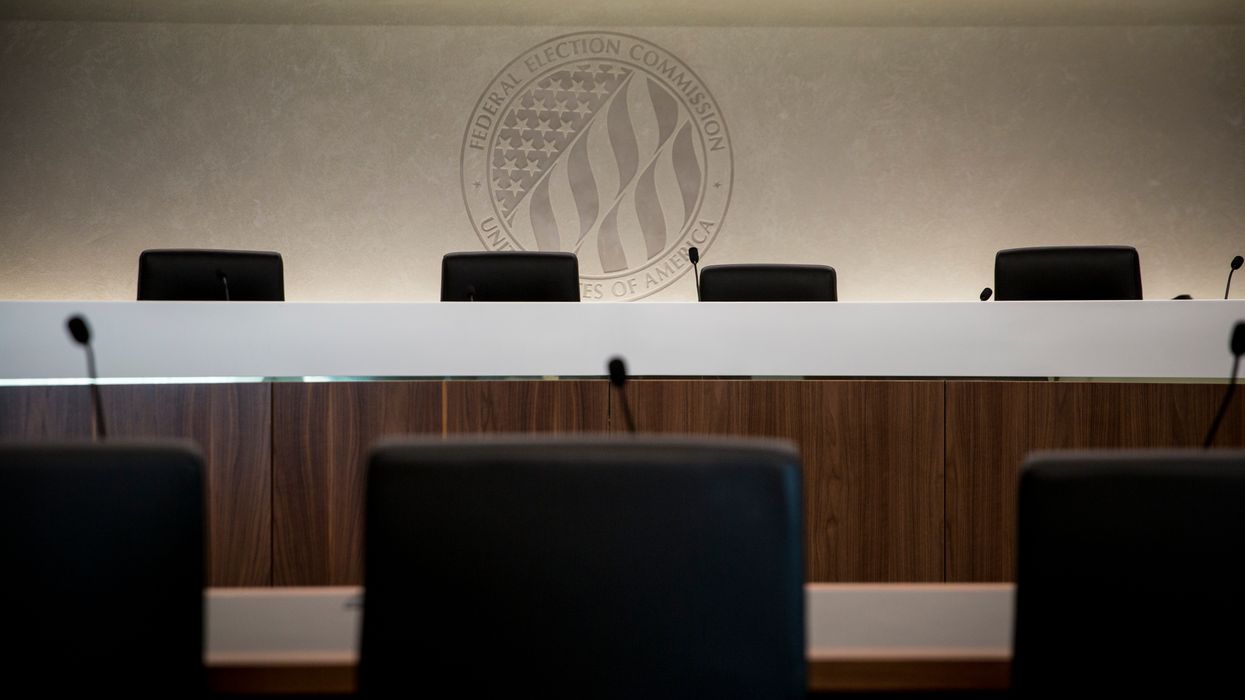In its 45-year history, the Federal Election Commission has had 31 commissioners — all but one of them white.
"Such homogenous senior leadership is not reflective of the diverse nation the FEC serves, and it is detrimental to the morale and effectiveness of the agency," more than five dozen agency staff members said in a letter Monday urging President Trump and Senate leaders to fix the problem.
They asked Trump to nominate and the Senate to confirm at least one person of color for the three vacancies on the commission, which has been essentially shut down for the past eight weeks for lack of a four-member quorum. That seems highly unlikely before the election, not only because partisan politics are intensified during the campaign but also because senators will be in town for only a few weeks before November.
Nonetheless, the unusual public complaint from the nonpartisan civil servants inside the ranks suggests just how beleaguered the government's principal campaign finance watchdog is these days — and how the nation's reckoning with systemic racism this year has taken root in most every corner of society.
This is the second time in a year the FEC has been unable to function for lack of a quorum. After Matthew Petersen resigned almost a year ago, the agency was in limbo for more than nine months until conservative Texas campaign finance lawyer Trey Trainor was confirmed in May. But fellow conservative Caroline Hunter resigned just a month later, leaving the FEC toothless once again.
The president immediately proposed as her replacement Allen Dickerson of the Institute for Free Speech, a campaign finance deregulation advocacy group, but the Senate has not touched the nomination. If he joined the panel, only one of the other two vacancies could be filled by a Republican. The law mandates a bipartisan split to make sure neither party can impose its campaign finance views on the other.
But political affiliation is not the only important factor to consider when choosing new commissioners, the 66 staff members — about one-fifth of the FEC workforce — wrote in the letter. Proper enforcement of campaign finance laws is informed not only by commissioners' legal training, they said, but also the members' different life experiences and perspectives.
"By excluding members of a wide swath of our country's population, the commission loses out on the perspectives of people from diverse communities," the letter states. "We make this call not to tip the balance toward any party or potential nominee but instead to rectify a historical blindness to the benefits commissioners of diverse backgrounds and experiences can bring."
While not named in the letter, Shana Broussard, a senior attorney at the FEC since 2015, would be a fine starting point to diversify the commission as its first Black member. Senate Minority Leader Chuck Schumer and Amy Klobuchar of Minnesota, the top Democrat on the committee that oversees the agency, have called for her nomination.
The only non-white member in FEC history was Ann Ravel, whose mother is Brazilian. She was a commissioner from 2013 to 2017 and is now running as a Democrat for the state Senate in California.
The letter was an outgrowth of a workshop on diversity, equity and inclusion the agency staff held this summer.




















Trump & Hegseth gave Mark Kelly a huge 2028 gift